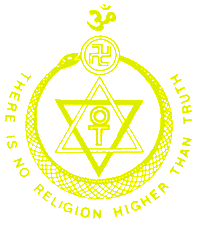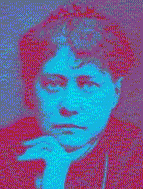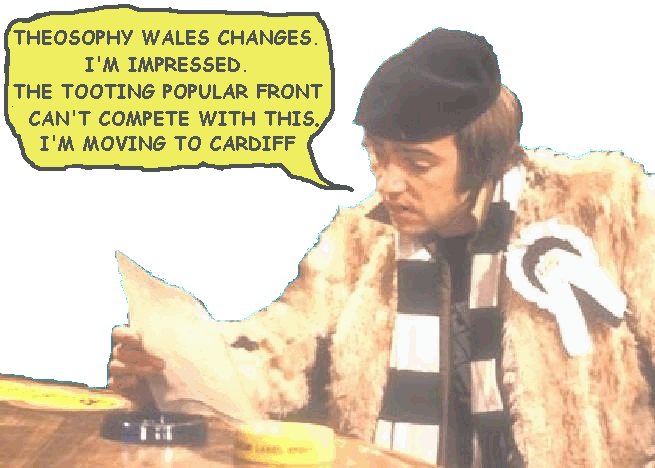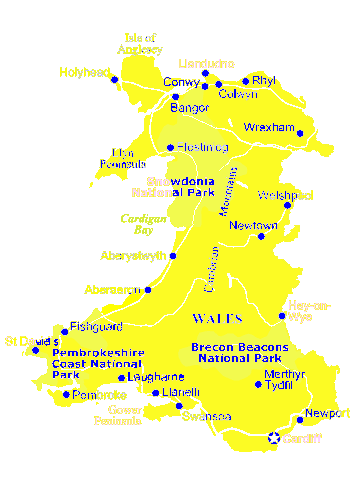Cardiff
Theosophical Society in Wales
206 Newport Road,
Cardiff, Wales, UK. CF24 -1DL
Please click here to find out what’s
on at Cardiff Theosophical Society
Cardiff Theosophical Society meetings
are informal
and there’s always a cup of tea
afterwards
The Mind in Nature
by
HP Blavatsky
Helena
Petrovna Blavatsky
1831
– 1891
The
Founder of Modern Theosophy
First
published in Lucifer, September, 1896 p9
Great is the
self-satisfaction of modern science, and unexampled its achievements.
Pre-christian and medićval philosophers may have left a few landmarks over
unexplored mines: but the discovery of all the gold and priceless jewels is due
to the patient labours of the modern scholar. And thus they declare that the
genuine, real knowledge of the nature of the Kosmos and of man
is all of
recent growth. The luxuriant modern plant has sprung from the dead weeds of
ancient superstitions.
Such,
however, is not the view of the students of Theosophy. And they say that it is
not sufficient to speak contemptuously of "the untenable conceptions of an
uncultivated past," as Mr. Tyndall and others have done, to hide the
intellectual quarries out of which the reputations of so many modern
philosophers and scientists have been hewn. How many of our distinguished
scientists
have derived honour and credit by merely dressing up the ideas of those old
philosophers, whom they are ever ready to disparage, is left to an impartial
posterity to say. But conceit and self-opinionatedness have fastened like two
hideous cancers on the brains of the average man of learning; and this is
especially the case with the Orientalists -- Sanskritists, Egyptologists and
Assyriologists.
The former
are guided (or perhaps only pretend to be guided) by
post-Mahâbhâratan
commentators; the latter by arbitrarily interpreted papyri, collated with what
this or the other Greek writer said, or passed over in silence, and by the
cuneiform inscriptions on half-destroyed clay tablets copied by the Assyrians
from "Accado-" Babylonian records. Too many of them are apt to
forget, at every convenient opportunity, that the numerous changes in language,
the allegorical phraseology and evident secretiveness of old mystic writers,
who were generally under the obligation never to divulge the solemn secrets of
the sanctuary, might have sadly misled both translators and commentators.
Most of our
Orientalists will rather allow their conceit to run away with their logic and
reasoning powers than admit their ignorance, and they will proudly claim like
Professor Sayce1 that they have unriddled the true meaning of the religious
symbols of old, and can interpret esoteric texts far more correctly than could
the initiated hierophants of Chaldća and Egypt.
(fn 1) See
the Hibbert Lectures for 1887, pages 14-17, on the origin and growth of the
religion of the ancient Babylonians, where Prof. A. H. Sayce says that though
"many of the sacred texts were so written as to be intelligible only to
the initiated [italics mine] ... provided with keys and glosses,"
nevertheless,
as many of
the latter, he adds, "are in our hands," they (the Orientalists) have
"a clue to the interpretation of these documents which even the initiated
priests did not possess." (p17)
This
"clue" is the modern craze, so dear to Mr. Gladstone, and so stale in
its monotony to most, which consists in perceiving in every symbol of the
religions of old a solar myth, dragged down, whenever opportunity requires, to
a sexual or phallic emblem. Hence the statement that while "Gisdhubar was
but a champion and conqueror of old times," for the Orientalists, who
"can penetrate beneath the myths" he is but a solar hero, who was
himself but the transformed descendant of a humbler God of Fire (loc. cit.
p.17).
This amounts
to saying that the ancient hierogrammatists and priests, who were the inventors
of all the allegories which served as veils to the many truths taught at the
Initiations, did not possess a clue to the sacred texts composed or written by
themselves. But this is on a par with that other illusion of some
Sanskritists,
who, though they have never even been in India, claim to know Sanskrit accent
and pronunciation, as also the meaning of the Vedic allegories, far better than
the most learned among the greatest Brahmânical pundits and Sanskrit scholars
of India.
After this
who can wonder that the jargon and blinds of our medićval alchemists and
Kabalists are also read literally by the modern student; that the Greek and
even the ideas od Aeschylus are corrected and improved upon by the Cambridge
and Oxford Greek scholars, and that the veiled parables of Plato are attributed
to his "ignorance." Yet if the students of the dead languages know
anything, they ought to know that the method of extreme necessitarianism was
practiced in ancient as well as in modern philosophy; that from the first ages
of man, the fundamental truths of all that we are permitted to know on earth
were in the safe keeping of the Adepts of the sanctuary; that the difference in
creeds and religious practice was only external; and that those guardians of
the primitive divine revelation, who had solved every problem that is within
the grasp of human intellect, were bound together by a universal freemasonry of
science and
philosophy,
which formed one unbroken chain around the globe. It is for philology and the
Orientalists to endeavour to find the end of the thread. But if they will
persist in seeking it in one direction only, and that the wrong one, truth and
fact will never be discovered. It thus remains the duty of psychology and
Theosophy to help the world to arrive at them. Study the Eastern religions by
the light of Eastern -- not Western -- philosophy, and if you happen to relax
correctly one single loop of the old
religious
systems, the chain of mystery may be disentangled. But to achieve this, one must
not agree with those who teach that it is unphilosophical to enquire into first
causes, and that all that we can do is to consider their physical effects. The
field of scientific investigation is bounded by physical nature on every side;
hence, once the limits of matter are reached, enquiry must stop and work be
re-commenced. As the Theosophist has no desire to play at being a squirrel upon
its revolving wheel, he must refuse to follow the lead of the materialists.
He, at any
rate, knows that the revolutions of the physical world are, according to the ancient doctrine, attended by like
revolutions in the world of intellect, for the spiritual evolution in the
universe proceeds in cycles, like the physical one. Do we not see in history a
regular alternation of ebb and flow in the tide of human progress? Do we not
see in history, and even find this within our own experience, that the great
kingdoms of the world, after reaching the culmination of their greatness,
descend again, in accordance with the same law by which they ascended? till,
having reached the lowest point, humanity reasserts itself and mounts up once
more, the height of its attainment being, by
this law of
ascending progression by cycles, somewhat higher than the point from which it
had before descended? Kingdoms and empires are under the same cyclic laws as
plants, races and everything else in Kosmos.
The division
of the history of mankind into what the Hindus call the Sattva, Tretya, Dvâpara
and Kali Yugas, and what the Greeks referred to as "the Golden, Silver,
Copper, and Iron Ages" is not a fiction. We see the same thing in the
literature of peoples. An age of great inspiration and unconscious
productiveness
is invariably followed by an age of criticism and consciousness. The one
affords material for the analyzing and critical intellect of the other. "The moment is more opportune than ever
for the review of old philosophies.
Archćologists, philologists, astronomers, chemists and physicists are getting
nearer and
nearer to the point where they will be forced to consider them. Physical science has already reached its
limits of exploration; dogmatic theology sees the springs of its inspiration
dry. The day is approaching when the world will receive the proofs that only
ancient religions were in harmony with nature, and ancient science embraced all
that can be known."
Once more the
prophecy already made in
"Secrets
long kept may be revealed; books long forgotten and arts long time lost may be
brought out to light again; papyri and parchments of inestimable importance
will turn up in the hands of men who pretend to have unrolled them from
mummies, or stumbled upon them in buried crypts; tablets and pillars, whose
sculptured revelations will stagger theologians and confound scientists, may
yet be excavated and interpreted. Who knows the possibilities of the future? An
era of disenchantment and rebuilding will soon begin -- nay, has already begun.
The cycle has almost run its course; a new one is about to begin, and the
future pages of history may contain full evidence, and convey full proof of the
above."
Since the day
that this was written much of it has come to pass, the discovery the Assyrian
clay tiles and their records alone having forced the interpreters of the
cuneiform inscriptions--both Christians and Freethinkers--to alter the very age
of the world.2 fn 2) Sargon, the first "Semitic" monarch of
Babylonia, the prototype and original of Moses, is now placed 3,750 years B.C.
(p21), and the Third Dynasty of Egypt "some 6,000 years ago," hence
some years before the world was created, agreeably to Biblical chronology. See
Hibbert Lectures on
The chronology
of the Hindu Purânas, reproduced in The Secret Doctrine, is now derided, but
the time may come when it will be universally accepted. This may be regarded as
simply an assumption, but it will be so only for the present.
It is in
truth but a question of time. The whole issue of the quarrel between the
defenders of ancient wisdom and its detractors -- lay and clerical -- rests (a)
on incorrect comprehension of the old philosophies, for the lack of the keys
the Assyriologists boast of having discovered; and (b) on the materialistic and
anthropomorphic tendencies of the age. This in no wise prevents the Darwinists
and materialistic philosophers from digging into the intellectual mines of the
ancients and helping themselves to the wealth of ideas they find in them; nor
the divines
from discovering Christian dogmas in Plato's philosophy and calling them
"presentiments," as in Dr. Lundy's Monumental Christianity, and other
like modern works.
Of such
"presentiments" the whole literature -- or what remains of this
sacerdotal literature -- of
unknowable to
the "brain" intellect, or the conditioned and limited cognition of
man.
To imagine
any witness to it in the manifested universe, other than as Universal Mind, the
Soul of the universe is impossible. That which alone stands as an undying and
ceaseless evidence and proof of the existence of that One Principle, is the
presence of an undeniable design in kosmic mechanism, the birth, growth,
death and
transformation of everything in the universe, from the silent and unreachable
stars down to the humble lichen, from man to the invisible lives now called
microbes. Hence the universal acceptation of "Thought Divine," the
Anima Mundi of all antiquity.
This idea of
Mahat (the great) Akâshâ or Brahma's aura of transformation with the Hindus, of
Alaya, "the divine Soul of thought and compassion" of the
trans-Himâlayan mystics; of Plato's "perpetually reasoning Divinity,"
is the oldest of all the doctrines now known to, and believed in, by man.
Therefore
they cannot
be said to have originated with Plato, nor with Pythagoras, nor with any of the
philosophers within the historical period. Say the Chaldćan Oracles "The
works of nature co-exist with the intellectual noero, spiritual Light of the
Father. For it is the Soul psyche which adorned the great heaven, and which
adorns it after the Father."
"The
incorporeal world then was already completed, having its seat in the Divine
Reason," says Philo, who is erroneously accused of deriving his philosophy
from Plato.
In the
Theogony of Mochus, we find Ćther first, and then the air; the two principles
from which Ulom, the intelligible (noetos) God (the visible universe of matter)
is born.
In the Orphic
hymns, the Eros-Phanes evolves from the Spiritual Egg, which the ćthereal winds
impregnate, wind being "the Spirit of God," who is said to move in
ćther, "brooding over the Chaos" -- the Divine "Idea." In
the Hindu Kathopanishad, Purusha, the Divine Spirit, stands before the original
Matter;
from their
union springs the great Soul of the World, "Mahâ-Âtmâ, Brahm, the Spirit
of Life;" these latter appellations are identical with the Universal Soul,
or Anima Mundi, and the Astral Light of the Theurgists and Kabalists.
Pythagoras brought his doctrines from the eastern sanctuaries, and Plato
compiled them
into a form more intelligible than the mysterious numerals of the Sage -- whose
doctrines he had fully embraced -- to the uninitiated mind. Thus, the Kosmos is
"the Son" with Plato, having for his father and mother the Divine
Thought and
Matter. The "Primal Being" (Beings, with the Theosophists, as they
are the collective aggregation of the divine Rays), is an emanation of the
Demiurgic or Universal Mind which contains from eternity the idea of the
"to be created world" within itself, which idea the unmanifested
Logos produces of Itself. The first Idea "born in darkness before the
creation of the world" remains in the unmanifested Mind; the second is
this Idea going out as a reflection from the Mind (now the manifested Logos),
becoming clothed with matter, and assuming an objective existence.
H P Blavatsky
Cardiff
Theosophical Society in Wales
206 Newport Road,
Cardiff, Wales, UK. CF24 -1DL
_____________________________
Theosophy
Links
Cardiff Theosophical
Society meetings are informal
and there’s always a
cup of tea afterwards
The
Cardiff Theosophical Society Website
The
National Wales Theosophy Website
Bangor,
Cardiff, Conwy & Swansea
If you
run a Theosophy Group, please feel free
to use
any of the material on this site
The Most Basic Theosophy
Website in the Universe
A quick overview of Theosophy
and the Theosophical Society
If you run a Theosophy Group you
can use this as an introductory handout.
Theosophy Cardiff’s Instant Guide
Theosophical Movement in Wales
as it separates into independent
groups that run do their own show
One liners and quick explanations
H P
Blavatsky is usually the only
Theosophist
that most people have ever
heard
of. Let’s put that right
The Voice of the Silence Website
An
Independent Theosophical Republic
Links
to Free Online Theosophy
Study
Resources; Courses, Writings,
The main criteria for the inclusion of
links on this site is that they have some
relationship (however tenuous) to Theosophy
and are lightweight, amusing or entertaining.
Topics include Quantum Theory and Socks,
Dick Dastardly and Legendary Blues Singers.
A selection of articles on Reincarnation
Provided in response to the large
number of enquiries we receive at
Cardiff Theosophical Society on this subject
The Voice of the Silence Website
This is for
everyone, you don’t have to live
in Wales to
make good use of this Website
No
Aardvarks were harmed in the
Within the British Isles, The Adyar Based Theosophical
Society is the largest
Theosophy body with around 200 memebrs and has Groups in;
Bangor*Basingstoke*Billericay*Birmingham*Blackburn*Bolton*Bournemouth
Bradford*Bristol*Camberley*Cardiff*Chester*Conwy*Coventry*Dundee*Edinburgh
Folkstone*Glasgow*Grimsby*Inverness*Isle of
Man*Lancaster*Leeds*Leicester
Letchworth*London*Manchester*Merseyside*Middlesborough*Newcastle upon
Tyne
North Devon*Northampton*Northern Ireland*Norwich*Nottingham
Perth*Republic of Ireland*Sidmouth*Southport*Sussex*Swansea*Torbay
Tunbridge Wells*Wallasey*Warrington*Wembley*Winchester*Worthing
The Spiritual Home of Urban Theosophy
The Earth Base for Evolutionary Theosophy
A
B
C
D
EFG
H
IJ
KL
M
N
OP
QR
S
T
UV
WXYZ
Complete Theosophical Glossary in Plain Text Format
1.22MB
Quick Explanations with Links to More Detailed Info
What is Theosophy ? Theosophy Defined (More Detail)
Three Fundamental Propositions Key Concepts of Theosophy
Cosmogenesis Anthropogenesis Root Races
Ascended Masters After Death States
The Seven Principles of Man Karma
Reincarnation Helena Petrovna Blavatsky
Colonel Henry Steel Olcott William Quan Judge
The Start of the Theosophical
Society
History of the Theosophical
Society
Theosophical Society Presidents
History of the Theosophical
Society in Wales
The Three Objectives of the Theosophical
Society
Explanation of the Theosophical
Society Emblem
The Theosophical Order of
Service (TOS)
Glossaries of Theosophical Terms
An Outstanding Introduction to Theosophy
By a student of Katherine Tingley
Elementary Theosophy Who is the Man? Body and Soul
Body, Soul and Spirit Reincarnation Karma
What Theosophy Is From the Absolute to Man
The Formation of a Solar System The Evolution of Life
The Constitution of Man After Death Reincarnation
The Purpose of Life The Planetary Chains
The Result of Theosophical Study
An Outline of Theosophy
Charles Webster Leadbeater
Theosophy - What it is How is it Known? The Method of Observation
General Principles The Three Great Truths The Deity
Advantage Gained from this
Knowledge The Divine Scheme
The Constitution of Man The True Man Reincarnation
The Wider Outlook Death Man’s Past and Future
Cause and Effect What Theosophy does for us
_____________________
Try these if you are looking
for a local
Theosophy Group or Centre
UK Listing of Theosophical Groups
Please tell us about your UK Theosophy Group
___________________
into categories and
presented according to relevance of website.
Web Directory
- Add Link - Submit Article - Online Store - Forum
______________________
General pages about Wales, Welsh History
and The History of Theosophy in Wales
Wales is a
Principality within the United Kingdom and has an eastern
border with
England. The land area is just over 8,000 square miles.
Snowdon in North
Wales is the highest mountain at 3,650 feet.
The coastline is
almost 750 miles long. The population of Wales
as at the 2001 census is 2,946,200.
________________
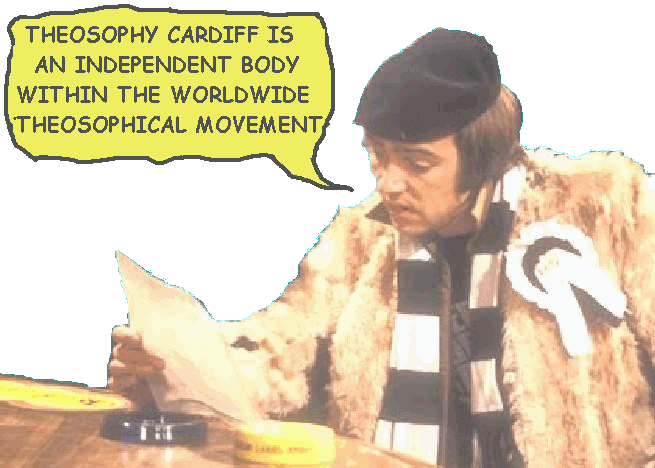
Bangor
Conwy & Swansea Lodges are members
of
the Welsh Regional Association (Formed 1993).
Theosophy
Cardiff separated from the Welsh Regional Association in March 2008 and is
now a stand alone group
affiliated to
the Adyar Theosophical Society.
High
Drama & Worldwide Confusion
as
Theosophy Cardiff Separates from the
Welsh
Regional Association (formed 1993)
Cardiff
Theosophical Society in Wales
206 Newport Road,
Cardiff, Wales, UK. CF24 -1DL
